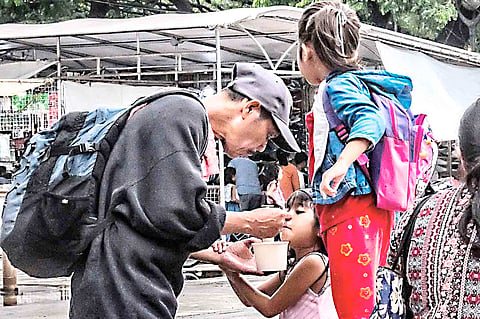
- NEWS
- the EDIT
- COMMENTARY
- BUSINESS
- LIFE
- SHOW
- ACTION
- GLOBAL GOALS
- SNAPS
- DYARYO TIRADA
- MORE

Father’s Day, celebrated yesterday, 16 June, holds a unique place in the hearts of many Filipinos, despite the complexities of modern family dynamics.
The observance of this day is highly relevant, even amidst the prevalence of broken families and the strong push for a divorce law in the Philippines. It serves as a reminder of the evolving roles and significance of fatherhood in Filipino society.
Father’s Day in the Philippines is traditionally a time for honoring fathers and celebrating their contributions to the family. In a country where family ties are deeply valued, this day provides an opportunity to express gratitude and appreciation for fathers’ hard work, sacrifices, and love. Regardless of marital status or family structure, many Filipinos seize this occasion to acknowledge the irreplaceable role fathers play.
Amid the growing number of broken families, Father’s Day can take on additional layers of meaning. It becomes not just a celebration of fathers within traditional nuclear families but also an inclusive recognition of all forms of fatherhood. This includes single fathers, stepfathers, and father figures who step up in the absence of biological fathers. Celebrating Father’s Day in such contexts highlights the resilience and adaptability of familial love and support.
Moreover, the ongoing debate about the divorce law in the Philippines underscores the importance of days like Father’s Day. The push for divorce legislation reflects the reality that not all marriages are sustainable or healthy. In these discussions, Father’s Day can serve as a poignant reminder that, regardless of the legal status of a marriage, the bond between a father and his children remains crucial. It emphasizes that good fatherhood is not contingent on the success of a marriage but on the commitment and love a father shows his children.
Father’s Day also provides a platform for addressing the challenges faced by fathers in broken families. It brings to light issues such as the need for legal reforms to ensure fathers’ rights and responsibilities are protected, especially in cases of separation or divorce. By focusing on the positive aspects of fatherhood, society can be reminded of the importance of supporting fathers in all family situations, ensuring they can maintain strong, loving relationships with their children.
In all, the observance of Father’s Day in the Philippines is highly relevant, serving as a beacon of appreciation and recognition amidst the complexities of modern family life. It is a day that transcends traditional family structures, celebrating the enduring bond between fathers and their children. As the country navigates the challenges of broken families and debates the merits of a divorce law, Father’s Day stands as a testament to the vital role of fathers and the importance of nurturing these relationships, no matter the circumstances
